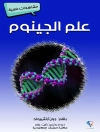This is the fourth updated and revised edition of a well-received book that emphasises on fungal diversity, plant productivity and sustainability. It contains new chapters written by leading experts in the field.
This book is an up-to-date overview of current progress in mycorrhiza and association with plant productivity and environmental sustainability. The result is a must hands-on guide, ideally suited for agri-biotechnology, soil biology, fungal biology including mycorrhiza and stress management, academia and researchers.
The topic of this book is particularly relevant to researchers involved in mycorrhiza, especially to food security and environmental protection.
Mycorrhizas are symbioses between fungi and the roots of higher plants. As more than 90% of all known species of plants have the potential to form mycorrhizal associations, the productivity and species composition and the diversity of natural ecosystems are frequently dependent upon the pre
senceand activity of mycorrhizas. The biotechnological application of mycorrhizas is expected to promote the production of food while maintaining ecologically and economically sustainable production systems.Содержание
Carbon Fluxes in Mycorrhizal Plants.- Basic and Applied Research for Desert Truffle Cultivation.- The Role of Arbuscular Mycorrhizal Fungi and the Mycorrhizal-like Fungus
Piriformospora indica in Biocontrol of Plant Parasitic Nematodes.- Mycorrhizal Fungi under Biotic and Abiotic Stress.- Role of Arbuscular Mycorrhizal Fungi (AMF) in Salinity Tolerance and Growth Response in Plants Under Salt Stress Conditions.- Arbuscular Mycorrhizal Technology Based on Ecosystem Services Rendered by Native Flora for Improving Phosphorus Nutrition of Upland Rice: Status and Prospect.- Arbuscular Mycorrhizal Fungi in Redeeming Arsenic Toxicity in Plants.- Co-cultivation of
Piriformospora indica with
Azotobacter sp.- Arbuscular Mycorrhizal Symbiosis- Genetic and Functional Diversity.- Mycorrhizal Symbiosis: Ways Underlying Plant–Fungus Interactions.- The Management of the Mycorrhizal Soil Infectivity: Ecological and Technical Approaches.- ;Reactive Oxygen Species (ROS) Metabolism and Signaling in Plant-Mycorrhizal Association Under Biotic and Abiotic Stress Conditions.- Stimulated Growth of
Lycopersicum esculentum CLA 1131 in Presence of
Piriformospora indica and Vermicompost.- Promotion and Value Addition to Some Important Medicinal Plants Under Saline Condition by Intervention of a Novel Mycorrhizal Formulation.- Co-cultivation of
Piriformospora indica and
Azotobacter chroococcum for Production of Artemisinin.- Microbial Symbiosis and Bioactive Ingredients of Medicinal Plants.- Cultivation of
Piriformospora indica with Nanomaterial in Bioreactor.- Understanding the Mycorrhiza-Nanoparticles Interaction.
Об авторе
Prof Dr Ajit Varma: Ajit Varma has completed his Ph D at the age of 25 years from Allahabad University and Former Professor, School of Life Sciences, Jawaharlal Nehru University, India. Presently, he is the Distinguished Scientist & Professor of Eminence of Amity Institute of Microbial Technology; Pro-Vice Chancellor, Ritnand Balved Education Foundation, and Vice Chairman, Amity Science, Technology & Innovation Foundation Amity University Uttar Pradesh, India. He has published more than 314 papers. Ajit Varma is the Fellow of Alexander-von-Humboldt Society, Germany, elected Fellow of National Academy Agricultural Sciences and Fellow of Microbiology Society of India.Ajit Varma is also series editor of the Springer series ‘Soil Biology’.
Dr Ram Prasad: Assistant professor at Amity Institute of Microbial technology, Amity University, Noida, India. He is working on plant microbe interaction, nanobiotechnology, and microbial biotechnology inc
ludingfungal biology. Ram Prasad has edited several books and has published a number of research papers and review articles to his credit in international journals. During 2014, Ram Prasad has been awarded American Cancer Society UICC International Fellowship for Beginning Investigator, USA.
Prof Dr Narendra Tuteja: An elected fellow of numerous academies and visiting scientists at ICGEB, New Delhi, he is currently Director and Head of Amity Institute of Microbial technology, Amity University, Noida, UP, India. Narendra Tuteja has made significant contributions to crop improvement under adverse conditions, reporting the first helicase from plant and human cells and demonstrating new roles of Ku autoantigen, nuclolin and el F4A as DNA helicases. Narendra Tuteja also reported several high salinity stress tolerant genes from plant and fungi and developed salt/drought tolerant plants.












